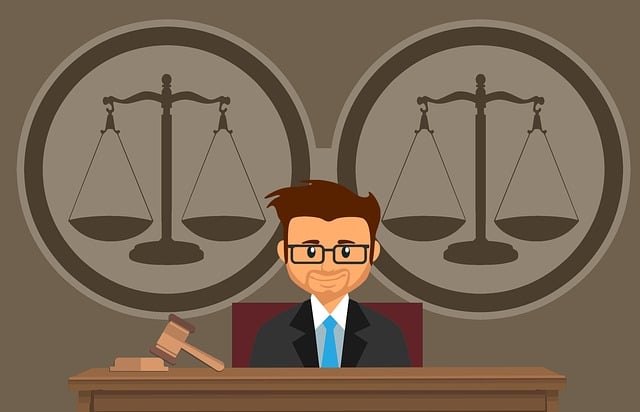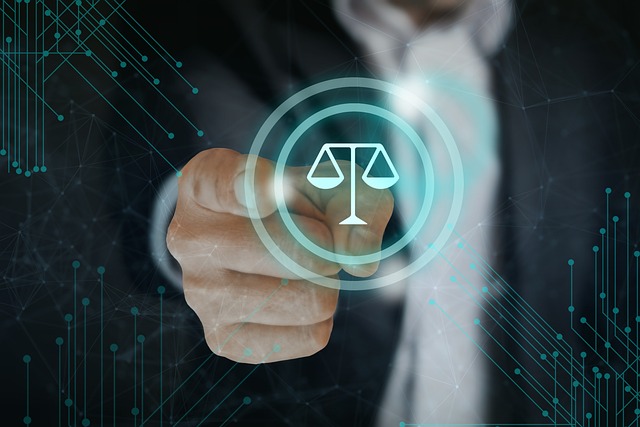Category: economic crime defense
Economic Crime Defense: Protecting the Global Financial Fabric
Introduction
In an era where financial systems are increasingly interconnected and digital, the threat landscape for economic crimes has evolved dramatically. Economic Crime Defense (ECD) emerges as a crucial discipline, focusing on safeguarding financial institutions, markets, and individuals from a myriad of fraudulent activities. This comprehensive guide delves into the intricacies of ECD, exploring its historical foundations, global impact, underlying strategies, and future prospects. By the end of this article, readers will grasp the significance of ECD in fostering trust, stability, and economic prosperity worldwide.
Understanding Economic Crime Defense
Definition and Core Components
Economic Crime Defense refers to a multi-faceted approach designed to prevent, detect, and mitigate various financial crimes, including money laundering, fraud, corruption, and terrorism financing. It involves a strategic combination of legal frameworks, regulatory measures, technological solutions, and operational procedures. The primary objectives are:
- Prevention: Implementing robust safeguards to deter criminal activities before they occur.
- Detection: Employing advanced tools and techniques to identify suspicious transactions or behaviors.
- Response: Efficiently investigating and responding to detected crimes, ensuring swift justice.
- Recovery: Assisting in the recovery of illicit assets to compensate victims and restore financial integrity.
Historical Context and Evolution
The concept of ECD has evolved over centuries, mirroring the advancement of financial systems. Historically, money laundering was among the first economic crime to gain significant attention, leading to the implementation of ‘know your customer’ (KYC) policies in the 1970s. The 9/11 terrorist attacks further catalyzed the global fight against terrorism financing, prompting stricter regulations and international cooperation.
Modern ECD has become increasingly sophisticated, leveraging data analytics, artificial intelligence (AI), and blockchain technology to stay ahead of evolving criminal tactics. This evolution reflects the increasing complexity of financial crimes and the need for more agile and intelligent defense mechanisms.
Global Impact and Trends
International Influence
Economic Crime Defense is a global concern, as illicit financial activities do not respect geographical boundaries. The international community has recognized this challenge, leading to numerous conventions, treaties, and organizations dedicated to fostering ECD:
- United Nations Office on Drugs and Crime (UNODC): Provides global leadership in fighting economic crime through policy advocacy, research, and technical assistance.
- Financial Action Task Force (FATF): A key intergovernmental body that sets international standards for preventing money laundering and terrorist financing.
- G7 and G20: These groups have made significant commitments to strengthening ECD, particularly in the context of tax havens and digital currencies.
Regional Disparities and Trends
While global cooperation is essential, regional differences significantly impact the implementation and effectiveness of ECD:
| Region | Strengths in ECD | Challenges | Emerging Trends |
|---|---|---|---|
| North America | Strong regulatory framework, advanced technology adoption | Increasing cybercrime, complex cross-border regulations | AI-driven fraud detection, blockchain for transaction transparency |
| Europe | Comprehensive anti-money laundering (AML) laws, robust financial supervision | Brexit’s impact on data sharing, rising cyber threats | Digital identity verification, enhanced customer due diligence |
| Asia-Pacific | Rapid technological adoption, growing awareness of economic crimes | Lack of uniform regulatory standards, underresourced law enforcement | Biometric authentication, artificial intelligence for risk modeling |
| Africa | Emerging financial inclusion efforts, potential for innovative solutions | Limited resources, weak legal frameworks | Mobile money security enhancements, data analytics for fraud prevention |
Economic Considerations
Market Dynamics and Investment Patterns
Economic Crime Defense plays a pivotal role in shaping market dynamics and investment behavior:
- Market Stability: Effective ECD measures build investor confidence, fostering stable financial markets.
- Risk Perception: Clear regulatory guidelines influence how businesses and investors assess risks associated with various financial activities.
- Investment Flows: Strong anti-money laundering (AML) policies can attract foreign investment by demonstrating a country’s commitment to transparency and integrity.
The Role of ECD in Economic Systems
The economic impact of ECD extends beyond individual institutions; it touches the entire economic system:
- Economic Growth: By reducing corruption, fraud, and illicit financial flows, ECD contributes to sustained economic growth and development.
- Resource Allocation: Intact financial systems ensure efficient allocation of capital, promoting entrepreneurship and innovation.
- Poverty Reduction: Effective ECD can help recover illicit assets, potentially redistributing wealth and improving social welfare.
Technological Advancements in Economic Crime Defense
Transforming the Landscape
Technological innovations are revolutionizing ECD, enabling more efficient, accurate, and proactive defense mechanisms:
- Data Analytics and AI: Advanced analytics predict fraudulent patterns, while AI automates complex tasks, enhancing detection capabilities.
- Blockchain and Distributed Ledger Technology (DLT): These technologies provide immutable transaction records, improving transparency and accountability.
- Biometric Authentication: Fingerprint, facial recognition, and other biometric methods enhance customer onboarding security.
- Cyber Security Measures: Firewalls, encryption, and threat intelligence systems protect against cyberattacks targeting financial institutions.
Impact and Future Potential
The impact of these technologies is profound:
- Improved Detection: AI algorithms can analyze vast datasets to identify anomalies, while blockchain ensures the integrity of transaction data.
- Cost Savings: Automation reduces operational costs associated with manual processes, freeing up resources for strategic initiatives.
- Enhanced Customer Experience: Biometric authentication speeds up account opening, improving customer satisfaction.
In the future, ECD technologies will likely become more integrated, forming a comprehensive digital defense system against financial crimes.
Operational Strategies in Economic Crime Defense
Building an Effective ECD Framework
Beyond technology, operational strategies form the backbone of ECD:
- Regulatory Compliance: Institutions must adhere to stringent AML, Know Your Customer (KYC), and anti-corruption regulations.
- Risk Assessment: Regularly review and update risk profiles, focusing on emerging threats like cybercrime and digital scams.
- Employee Training: Educate staff about fraud trends, red flags, and internal reporting mechanisms.
- Third-Party Due Diligence: Vet business partners, suppliers, and other third parties to mitigate risks associated with their operations.
Collaboration and Information Sharing
Collaboration is essential in ECD, as criminal networks often operate across borders:
- International Partnerships: Law enforcement agencies, financial institutions, and regulatory bodies collaborate through global forums and agreements.
- Data Sharing Platforms: Secure platforms facilitate the exchange of information on suspicious activities and known criminals.
- Joint Investigations: Cooperative efforts lead to more successful prosecutions and recovery of illicit assets.
Challenges and Considerations
Overcoming Barriers to Effective ECD
Despite significant progress, challenges remain in implementing robust ECD:
- Resource Constraints: Developing countries often lack the financial and technical resources needed for advanced ECD measures.
- Regulatory Harmonization: Inconsistent regulations across jurisdictions complicate compliance and increase operational costs.
- Technological Complexity: Balancing technological advancements with privacy concerns and ensuring access to digital tools for all stakeholders is essential.
- Evolving Criminal Tactics: Criminals continually adapt their methods, posing a dynamic challenge for ECD professionals.
Future Prospects and Recommendations
Shaping the Next Frontier of ECD
As technology advances, so must ECD strategies:
- Emerging Technologies: Keep pace with developments in quantum computing, artificial general intelligence (AGI), and advanced analytics to anticipate future threats.
- Cybersecurity Integration: With cybercrime on the rise, integrate robust cybersecurity measures into core ECD frameworks.
- Digital Inclusion and Financial Literacy: Ensure that technological advancements in ECD do not exacerbate financial inequalities; promote digital literacy and inclusion to empower individuals and businesses.
Global Cooperation and Knowledge Sharing
The fight against economic crime requires global solidarity:
- Standardization: Harmonize international standards and best practices to streamline compliance and reduce regulatory burdens.
- Capacity Building: Establish programs to enhance the capabilities of developing countries in implementing ECD measures.
- Information Exchange: Continuously share intelligence on emerging threats, vulnerabilities, and successful interventions.
Conclusion
Economic Crime Defense is a dynamic field that continues to evolve with technological advancements and changing criminal trends. By understanding its historical foundations, global impact, and underlying strategies, institutions and policymakers can forge effective defenses against financial crimes. Embracing innovation, fostering international cooperation, and addressing resource disparities will be crucial in shaping the future of ECD, ensuring economic stability and prosperity worldwide.
Stop Economic Crime, Save Money: Top Defense with Free Consultation
Save Time & Money: Unmatched Economic Crime Defense by Top Lawyers
Secure Your Future: Top Economic Crime Defense for Healthcare Fraud

Facing healthcare fraud charges can drain your finances and damage your reputation, but economic cri…….
Master Economic Crime Defense: Safeguard Your Wealth & Reputation

Tired of the constant threat of healthcare fraud eroding your profits? Master Economic Crime Defense…….
Master Economic Crime Defense: Protect Assets, Save Reputation – Free Consultation

Mastering Economic Crime Defense is your best bet to protect your hard-earned success and reputation…….
Revolutionize Economic Crime Defense: Protect Assets, Save Reputation – Free Consultation.

Facing financial fraud charges? Economic Crime Defense is your ultimate shield, protecting not just…….
Master Economic Crime Defense: Save Money, Protect Your Healthcare Business
Protect Your Assets: Expert Economic Crime Defense Saves You Money

Facing wire fraud charges can drain your resources and damage your reputation. But with Economic Cri…….
Expert Economic Crime Defense: Save Money, Protect Your Practice Now.

Facing healthcare fraud charges can drain your finances and damage your reputation. But with our eco…….



